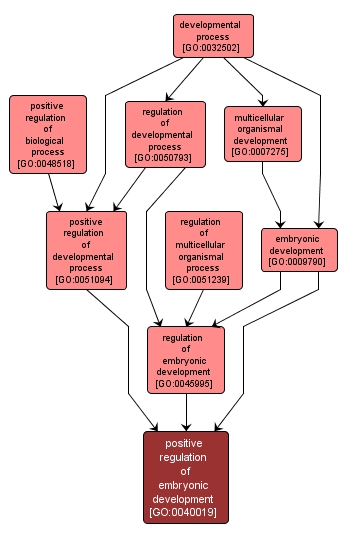GO TERM SUMMARY
|
| Name: |
positive regulation of embryonic development |
| Acc: |
GO:0040019 |
| Aspect: |
Biological Process |
| Desc: |
Any process that activates or increases the frequency, rate or extent of embryonic development. |
Synonyms:
- up-regulation of embryonic development
- upregulation of embryonic development
- up regulation of embryonic development
- stimulation of embryonic development
- activation of embryonic development
|
|

|
INTERACTIVE GO GRAPH
|














